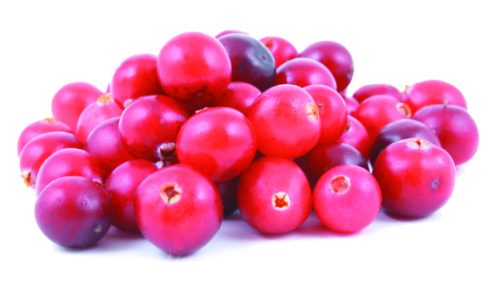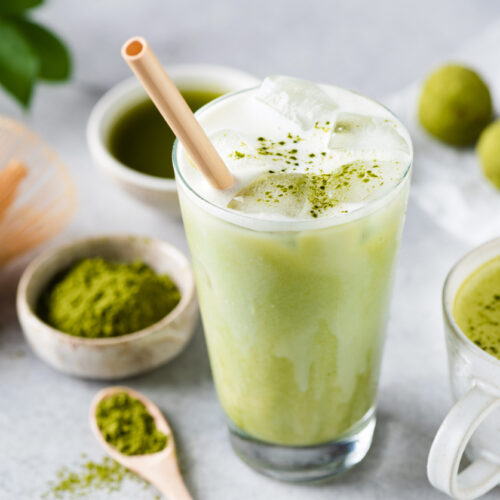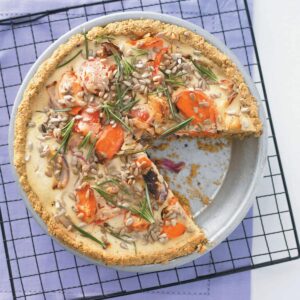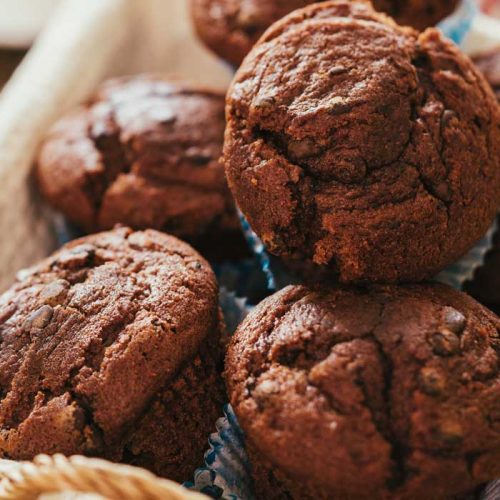
We explain how what we eat can make us smarter, sharper and more alert, from the womb to old age.
Foods the brain needs
The brain is the size of a small cauliflower, but it's the greediest part of the body. Despite only accounting for about 2.5% of our body weight, it guzzles its way through 20% of the kilojoules we consume. There are some important foods that – eaten throughout our lives – give the brain a boost and provide it with top-quality fuel to build brain cells, keep us going and stave off decline.
The brain needs two types of food to satisfy its large appetite. Firstly the fuel needed to function on a day-to-day basis, which tops up its energy supply, just like petrol in a car. And like a car, it also requires compo- nents to put it together in the first place, as well as ongoing servicing. Whether as fuel or car mechanic, food influences our brain power continuously from before we are born.
Being so hungry for food, there is never a time our brain is not affected by what we eat. Here are our tips for lifelong brain power.
Babies' brain development in pregnancy
What the brain needs
To develop the 100 billion brain cells a baby will be born with, it needs a good supply of folate, omega-3s, iodine, iron and zinc.
What to eat
- Bread, breakfast cereals, green vegetables and oranges or fruit juice are needed even before you are pregnant. They are all rich or fortified in folate. The Ministry of Health also recommends taking a daily folic acid tablet of 800µg (0.8mg) until the twelfth week of pregnancy, and ideally for at least four weeks before you become pregnant. Some women require a higher dose, so discuss this with your doctor or midwife.
- Oily fish, such as sardines, tuna, salmon, mackerel and kahawai, are the best sources of the long-chain omega-3 fats (EPA, DHA and DPA), while canola, flaxseed and walnut oils, and walnuts themselves, provide ALA, another type of these special fats.
- Check if any salt you are using is iodised. If it's a sea salt, it probably isn't. Try using an iodised table salt for cooking pasta and vegetables, leaving sea salts for 'finishing' dishes. Other sources of iodine are fish, dairy products and eggs, and bakers will be required to use iodised salt by September 2009.
- Red meat is the most easily-used source of iron. If you don't eat meat or fish, include plenty of pulses, such as baked beans, as well as fortified breads and breakfast cereals. To help you use the iron in these foods, drink fruit juice with your meals and not iron-inhibiting tea. Most of these foods also give you plenty of zinc.
Be careful
Meat is good, but don't go mad on liver. It's a great source of iron, but it contains too much vitamin A for your baby's brain. Too much vitamin A can damage your growing baby's development. A well-cooked liver casserole or small piece of liver with bacon once a week is fine. And go carefully with fish oil supplements; they also contain far too much vitamin A. Talk to your doctor or midwife before taking any supplements while you are pregnant.
Plus
Smoking or drinking excessive alcohol is harmful to a baby's brain development. It's really important to stop smoking and drinking alcohol while pregnant.
Growing babies and toddlers
What the brain needs
Babies enter the world with around 100 billion brain cells, but the brain is still only about 15% developed at this stage. As the saying goes, 'the lights are on but no-one's home'. The cells are there but they are not connected to one another. By a baby's third birthday, the brain will be almost fully developed, so in the first three years of life, signals must start passing from one cell (or neuron) to another, like a relay team passing the baton quickly and efficiently. Newborn babies must start connecting all those brain cells to ensure a bright future. To do that, babies and toddlers need omega-3s, iron and zinc.
What to eat
- Breastfeeding is the best nourishment for young babies, containing all the goodness they need at a time they are growing rapidly, including omega-3 fats, particularly one called DHA.
- Iron-rich foods are as important, if not more so, for babies as for pregnant mothers. Babies are born with enough iron for about six months. After that they need food sources of iron. Puréed meats can be introduced when your baby is 6-7 months. Infant cereals, vegetables, beans and lentils also provide some iron, plus fish, which can be offered from around eight months. Most of these foods also provide zinc.
- Including these foods throughout the first three years and beyond is essential to keep brain cells firing to their full potential. Fussiness and the transition from breast or formula milk to cows' milk, which is low in iron, makes the toddler years a vulnerable time for growing children.
Plus
Brain food for little ones comes from more than what they are eating. All they experience before they are three years old influences their ability to learn and how they behave in the future. They need a secure and loving home with plenty of stimulation. Talk, read, sing and play with your baby, and let them know they are loved.
School-aged children
What the brain needs
At this age the brain is processing lots of new information every day. The brain needs protein, carbohydrate, omega-3s and a range of vitamins and minerals.
What to eat
- Breakfast, however big or small, gives the brain fuel with which to work. Toast, breakfast cereal, eggs, fruit or yoghurt are all good ways to start the school day.
- Any protein foods, like meat, fish, nuts, cheese or
milk, keep you alert. They stimulate the production of the 'feel good' hormone, dopamine, helping you enjoy the subjects you usually like least. - Peanut butter sandwiches help keep the baton passing from neuron to neuron as fast as possible. If your school does not allow peanuts, substitute with egg, lean meat or cheese.
- Oily fish are important for learning as well as growing. Canned fish are a good sandwich or wrap filler for school lunch.
- Try to add fruit and vegetables to all your meals to ensure the full range of mind-bending vitamins and minerals. They are also good choices for brain food snack breaks.
Plus
No amount of the best food can replace a good night's sleep. Whether in the classroom, on the sports field or during exams, you will feel and do so much better if you are awake!
Adults
What the brain needs
Throughout our 40-odd years of working life, we all want to be as sharp and smart as we can. To perform at its best, an adult brain needs a regular supply of energy through the day as starchy carbohydrates.
What to eat
- Whether eaten at home, in the car or at work itself, breakfast is as important in the working world as during school. Trying to function on thin air is just not giving you the best chance to perform well.
- If morning tea is part of your working day, choose fruit over a muffin, sausage roll or giant cookie from the local café.
- Caffeine-containing drinks, such as coffee and tea, do have a place in the working day. A shot of caffeine will help you through meetings, but plan ahead; caffeine only takes full effect after an hour or so.
- Eating regularly through the day helps to keep your brain topped up with fuel, so make time for lunch. Keep a few 'emergency supplies' in your desk drawer for the days you can't leave the office or have forgotten your lunch. Canned fish, beans, fruit or rice puddings store well, plus crackers, nuts or low-fat muesli bars.
- Avoid chocolate or biscuits mid afternoon when energy levels are waning. If you've had lunch, take a walk around the office or some fresh air outside to re-stimulate your brain. A sugar fix is not the cure. If you have skipped lunch, go for a sandwich or fruit for longer lasting energy.
Plus
Keeping active may have more effect on your mood than your brain power, but taking a break in the fresh air can help increase those 'eureka' moments.
Older adults
What the brain needs
As we age, it may seem natural to have a mind like a sieve. This is because aging involves oxidation, the same process seen when metal rusts or an apple goes brown. So the brain at this time needs antioxidants as well as B vitamins, especially choline.
What to eat
- Fruit and vegetables are full of antioxidants, our best edible allies as we age. Choose carrots, beetroot, broccoli, tomatoes, kiwifruit, blueberries and avocadoes, together with nuts and seeds, cereals, oils and even good quality dark chocolate to stop the rust.
- To provide the B vitamins needed to keep the brain functioning well, eat a variety of meat, citrus fruits, vegetables, bread and breakfast cereals.
- Eggs are not only easy to cook and delicious in many forms, but they help keep the neurons firing, containing the specific B vitamin, choline.
Plus
Use it or lose it' is a good maxim as you grow older. Keep your brain and your body active indoors and out.
Top 10 brain-boosting foods
- Blueberries
- Cranberries
- Oily fish: salmon, mackerel, tuna, sardines, kahawai
- Red meat: beef, lamb, venison
- Nuts: walnuts, peanuts, Brazils
- Breakfast cereals
- Bread
- Eggs
- Red cabbage
- Yoghurt
Research update
ADHD (Attention Deficit Hyperactivity Disorder)
Research into food's effects on ADHD continues to focus on omega-3 fats. One of the lead researchers into ADHD is Dr Alex Richardson, from the UK's Oxford University. She maintains there is still no dietary cure or treatment, but omega-3-rich foods may help relieve symptoms and offer general health benefits.
Research update
Diet and school performance
A better diet has a positive effect on a child's academic performance, according to researchers in Canada who studied the diets and performance of 5200 grade 5 students. Children with diets higher in fruits, vegetables, grains, dietary fibre, protein, iron, calcium and vitamin C performed better in reading and writing assessments compared to those with diets higher in saturated fat, salt and 'empty-calorie foods'. Previous studies have shown undernourished children have decreased attention and performance.
Source: Journal of School Health, April 2008Omega-3s – the brain's wonder food?
Every brain cell is about two-thirds fat. To send messages effectively, its walls need to be flexible, which depends on the amount of omega-3s in them. Too little and the walls remain rigid; too much and they become soft and leaky. So it's all about balance. The amount of omega-6 fats to omega-3s is also important, as the two fat types compete with each other. Omega-3s are left useless if overrun by omega-6s. We get plenty of omega-6s in our diets (from vegetable oils) and it's for this reason we recommend eating more foods containing omega-3s, such as oily fish.
Research update
Dementia and Alzheimer's
People who suffer from Alzheimer's have reduced amounts of the brain messenger, acetylcholine. Eggs, milk, liver and cabbage help this messenger work faster. Researchers in the US also found red cabbage particularly good as it contains other beneficial antioxidants. There is some evidence to show eating healthily, particularly 'Mediterranean' style foods (oily fish, fresh fruit and vegetables), during adulthood helps prevent dementia.
www.healthyfood.com










